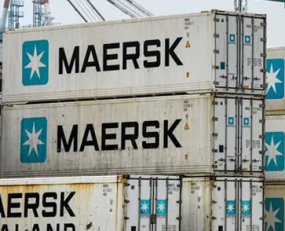
Updated targets have been set for A.P. Moller – Maersk to achieve net zero greenhouse gas emissions by 2040. This is one decade ahead of its initial 2050 ambition. Associated 2030 targets will ensure emissions reductions already in this decade.
A.P. Moller – Maersk (Maersk) has announced new emissions targets expected to align the company with the Net Zero criteria of the Science Based Targets initiative (SBTi) pathway to limit global warming to 1.5°C. The criteria include a societal commitment to act now and drive material impact in this decade, and a commitment to deliver net zero supply chains to customers by 2040. The targets go beyond previous efforts to reduce emissions related to the ocean fleet as they cover all direct and indirect emissions across the entire Maersk business.
It is of strategic value for Maersk to extend its net zero ambitions to the total footprint of the business in an attempt to not be caught out by its competitors in the future. Near-term targets for 2030 are set to ensure progress on curbing direct Maersk emissions already in this decade. These include a 50% reduction in emissions per transported container in the Maersk Ocean fleet and a 70% reduction in absolute emissions from fully controlled terminals. Depending on growth in the ocean business, it hopes this will lead to absolute emissions reductions between 35% and 50% from a 2020 baseline.
It will also be covering indirect emissions. This means the 2030 targets also address emissions from, e.g., inland transport services and vessel building which are provided by third party suppliers. Tackling this challenge will require data insights and close collaboration with local and regional suppliers of products and services across the Maersk business.
Source: Maersk